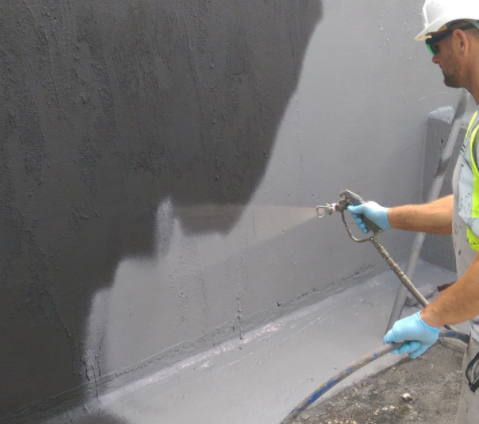 Is It Worth Basement Waterproofing?
Is It Worth Basement Waterproofing? Completely. Absolutely! Depending on the size of your house, the place you live, and the amount of waterproofing, your return on investment will depend. But it's a precious home improvement that the initial investment is worth.
A leaky or damp basement will cause you some trouble during the sale process if you intend to sell your home at some point. If a home inspector discovers it (which they will), the value of your home will be diminished and prospective buyers will be scared away.
Even if you intend to remain in your home for years to come, valuable property may be destroyed by a damp basement, and insurance can not cover it.
Do add a membrane and sealant.
During the inspection, whether you or the contractor notice any holes, the next move is to seal them. On concrete and masonry walls, a cement-based sealant can be easily applied.
In order to further block outside water, a waterproof membrane can then be attached to the foundation wall. Should more cracks occur, this membrane can move and adapt.
Don't use plastic or tar.
For waterproofing, both of these objects should be avoided. Eventually, Tar will become porous and break, leaving you to begin all over again. Likewise, plastic can peel, letting humidity back in again.
Don't patch a leak with paint that is waterproof.
There are porous concrete walls. Waterproof paint sits only on the concrete surface and never permeates the pores, so it never binds with the wall. It carries with it minerals as water seeps in, which begin to build up behind the waterproof paint.
The paint flakes away as it builds up, taking you back to square one. A temporary repair that usually lasts 6-24 months is waterproof paint.
The Dos and Don'ts of Your Basement Waterproofing
Determine where the water originates from.
To signal where the water is leaking in, search for lines along walls. Check to see that away from home the landscaping is graded. Verify that the gutters are not overflowing.
It's time to employ a plumber to check the storm system around the home if all of that looks fine and you still have moisture. To decide if there are any blocked or infected pipes contributing to the issue, they may use a camera.
Dig around the wall of the outer basement (s).
Hire a contractor to dig down all the way to the drains of the base and mount a clean-out to check the lines. A simple blockage will sometimes cause the water to build up and seep in. The need to do more waterproofing is often removed by cleaning and testing these drain lines.
At the same time, to keep water flowing away from your house, they can add any required water drainage solutions.
Check the cracks.
During the excavation method, a specialist waterproofing firm will search for cracks. Cracks will make it possible for external water to seep in and cause water damage.
Do add a membrane and sealant.
During the inspection, whether you or the contractor notice any holes, the next move is to seal them. On concrete and masonry walls, a cement-based sealant can be easily applied.
In order to further block outside water, a waterproof membrane can then be attached to the foundation wall. Should more cracks occur, this membrane can move and adapt.








 From heating and cooling to electronics and appliances, it takes a lot of energy to power our daily lives. Our homes use 37 percent more energy today than they did in 1980. But without energy efficiency -- through technology innovation and federal energy conservation standards -- this number would be a lot higher. In fact, even though our total energy use has grown, our energy use per household is down about 10 percent, despite that our homes are larger and contain more devices.
From heating and cooling to electronics and appliances, it takes a lot of energy to power our daily lives. Our homes use 37 percent more energy today than they did in 1980. But without energy efficiency -- through technology innovation and federal energy conservation standards -- this number would be a lot higher. In fact, even though our total energy use has grown, our energy use per household is down about 10 percent, despite that our homes are larger and contain more devices.



